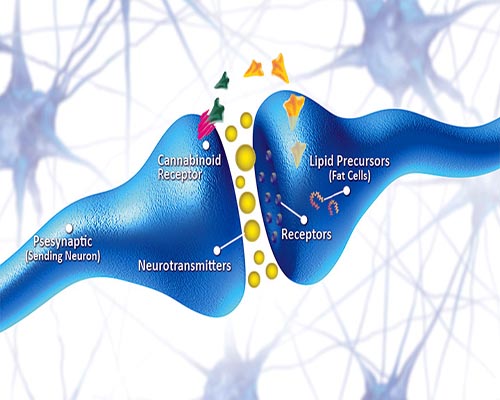As discussed in previous articles such as Cannabidiol 101: A Peek into Cannabinoid Chemistry and What Makes Cannabis Medicine?, the endocannabinoid system, or ECS, is a remarkably complex signaling network that has widespread effects within the body. In fact, many studies have been published examining the effects of various components of the ECS on appetite, metabolic health, blood sugar regulation, obesity, pain sensation, oxidative stress, thermoregulation, eye health, mood, memory, and much more.
However, one particularly interesting therapeutic application of the ECS is its effect on the immune system, or what some scientists refer to as “immuno-cannabinoid” modulation. Simply stated, the ECS can help regulate or vary the properties, tone, and overall function of the immune system.
Although the immunomodulatory effects of the ECS have not been fully elucidated, here’s what we do know. First, at optimal concentrations, certain cannabinoids can reduce inflammatory responses in patients with autoimmune diseases (e.g., multiple sclerosis, arthritis, lupus, encephalomyelitis, Parkinson’s). Cannabidiol is particularly potent in this regard.
Second, cannabinoids have been shown to play a role in modulating neurogenesis and neurodegeneration. For example, evidence from numerous studies demonstrates beneficial effects of cannabinoids on animal models of stroke, head injury, cerebral ischemia, as well as beta-amyloid induced tau protein phosphorylation (tauopathy). It has been established that the immune system plays a critical role in many of these neurodegenerative and neuroinflammatory conditions.

It is important to recognize that these immunomodulatory effects are the result of a coordinated cascade of responses from the so-called “innate immune system” as well as the “adaptive immune system.” The immune system is a huge network of various immune cell types that express many different receptors (think of them as locks), and release and respond to many cytokines/hormones (think of these as keys that help open those locks).
Cell-mediated immunity is one of the key components of the adaptive immune system that responds by utilizing specialized T-cells and natural killer (NK) cells to seek out and neutralize pathogens, viral infected cells, and tumor cells that are recognized as foreign. Humoral immunity complements the cell-mediated system by using B-cells and developing antibodies to neutralize antigens or pathogens that are recognized as foreign.
If there is an imbalance between cell mediated and humoral immunity, it results in disease and dysfunction. For example, multiple sclerosis is an example of an autoimmune disease, in which the cell-mediated immune system is hyper-activated against the individual’s own brain and nervous system—as if it were foreign. Interestingly, the ECS and cannabinoids have been shown to play a key role in “balancing” the various arms and components of the immune system.

Few would argue that heavy, chronic use of unregulated marijuana can have deleterious effects on several aspects of health. However, scientists studying the effects of the ECS on the immune system, neuroinflammation, inflammatory arthritis joint health, and even systemic inflammation have uncovered remarkable benefits from naturally occurring and endogenously produced cannabinoids.
Various phytocannabinoids from cannabis, even within agricultural hemp, are showing enormous potential for optimizing and restoring balance to the immune system. Ultimately, understanding the intricate plasticity of cannabinoid compounds, cannabinoid receptors, and the enzymes that synthesize, hydrolyze, and metabolize them, and the complex cross-talk that exists with other organ systems in the body, will undoubtedly rewrite medical textbooks worldwide.
Taken from – http://www.eraofwisdom.org/cannabinoids-and-the-immune-system-immuno-cannabinoid-effects/ – 03/15/2016
by cannvest









